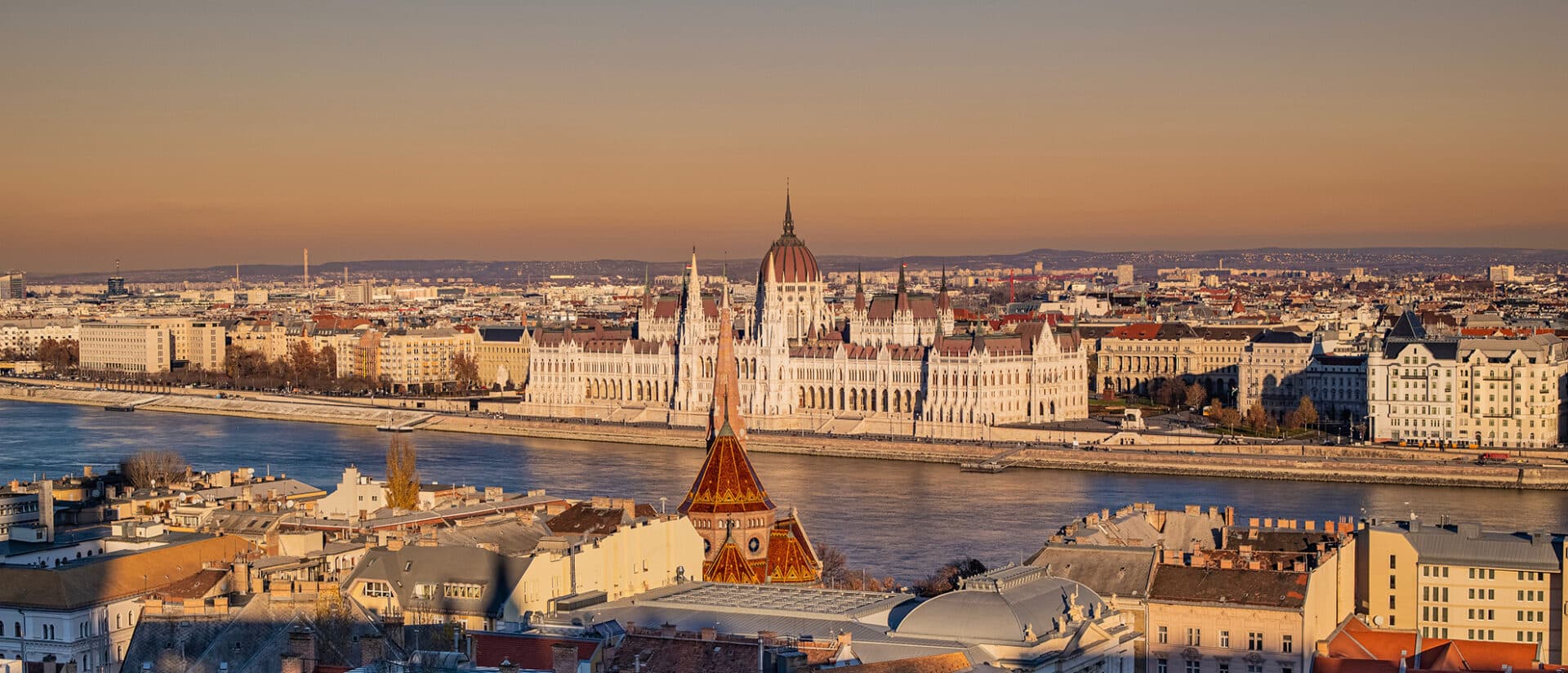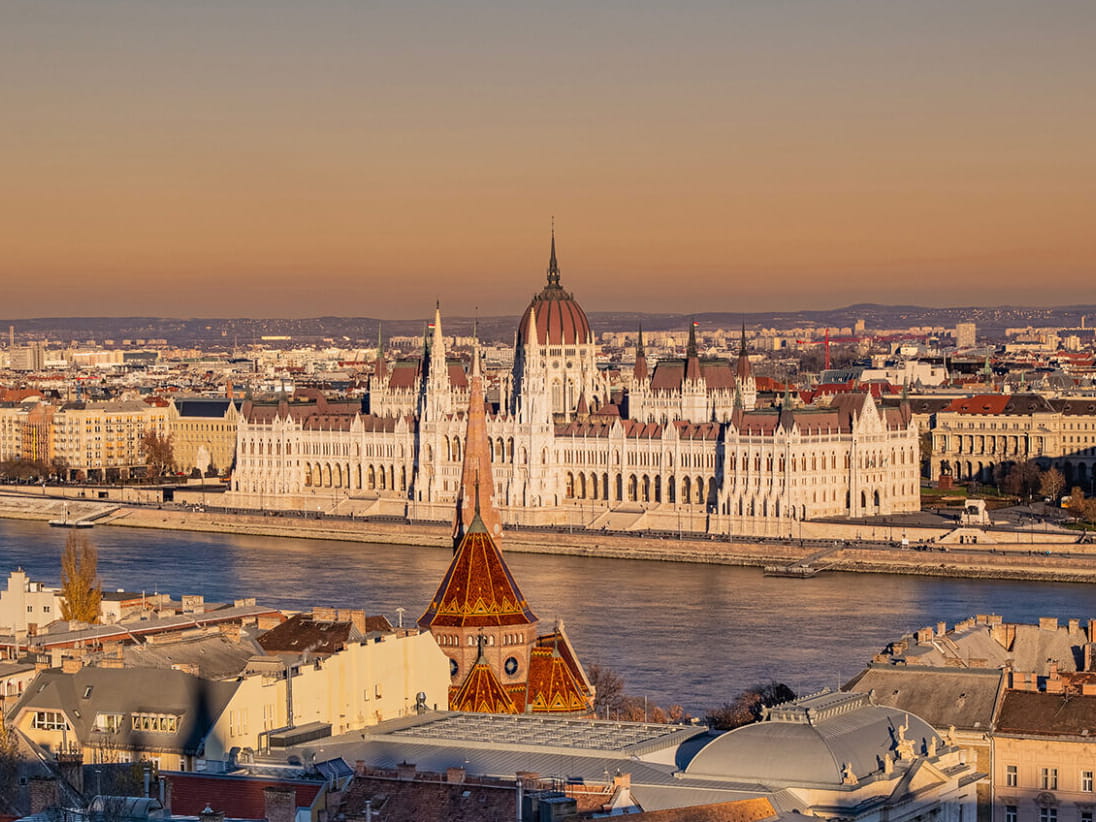Basic Facts


Basic Facts
Population: 9 730 000
Language: Hungarian
Currency: Forint
Climate: Continental
Area: 93 030 km2
Hungary is a relatively small, middle-European country with a very rich culture and exciting history. The Hungarian language itself is very interesting as unlike other ones in Europe, it is different from all languages of the neighbouring countries, making it almost impossible to understand any of it for foreigners. Geographically, the country is very consistent, we do not have mountains or seaside, instead, we have lots and lots of thermal water all over the whole country, in almost every big city you will find thermal baths that are popular among the locals. Lake Balaton is located in the western part of the country, it is the biggest lake in central Europe and with the neighbouring areas also very popular among tourists.
Hungarians are typically warm, welcoming people who will shout, swear and laugh a lot around the table and will not let you leave without eating and drinking a lot more than you intended. Gastronomy is very important for all of us and as our families pass on secret recipes of the most traditional dishes. Paprika is a stable of our kitchens and pálinka (our national drink) serves as a means of payment.
Budapest, our capital is a dreamy city, beautiful and fresh, shares space between the old and monumental, historical buildings, breathtaking views, underground bars, artsy shops, high fashion boutiques, cheap vintage thrift stores, loud and lively bar streets with young university students and quiet secret gardens where the old folks play chess every afternoon. It is a treasure chest where are many many things to discover, we can only encourage you to come to visit and fall in love with this magical home of ours!
Travel Information
Budapest is the capital of Hungary, with nearly 2,000,000 inhabitants. Not only it is the center of administration but also that of industry, trade, transport and traffic, education, culture, arts, and sports.
Most tourists visiting Hungary come to Budapest first, although Lake Balaton, in Western Hungary, is also a very popular destination.
Climate
Budapest has a temperate continental climate. Seasons are usually well-defined, with July and August the hottest months (28-30° C, 82-86° F) and December and January the coldest, when temperatures may fall under -15° C or just +5° F. Average sunshine from April to September is more than eight hours a day.
Time Zone Budapest
Budapest is in the Central European Time Zone. In the winter months, this means clocks are set at GMT + 1 hour and in the summer (March to the end of October) GMT + 2 hours.
Geography
Mostly residential Buda comprises one-third of the city’s total area, with over 20 hills on the right bank of the Danube.
Pest, on the left bank, is almost entirely flat and has most of the government and commerce, and industry.
Public Holidays
The three major national holidays are:
- 15th March (Freedom Fight and Revolution of 1848)
- 20th August (St. Stephen’s Day)
- 23rd October (1956 Revolution)
Hungarians, too celebrate Labor Day on the 1st of May, and the main religious festivals and holidays are observed (New Year’s Day, Easter Sunday and Easter Monday, Whitsunday and Whit Monday, All Saints’ Day, Christmas Day, and Boxing Day).
Opening Hours
Food shops are open from 7 am-6 pm
Clothes shops between 10 am-6 pm Monday to Saturday
Most of the shopping malls are open between 10 am-9 pm from Monday to Saturday and on Sunday from 10 am to 6 pm.
Office hours: generally from 8 am-4 pm Monday to Friday
Post offices: Monday-Friday: 8 am-6 pm, Saturday: 8 am-1 pm
Banks: Monday-Thursday: 8 am-3 pm, Friday: 8 am-1 pm
Other Information
The electric voltage in Hungary is 230 volts, and plugs are of the two-pin continental type.
The international telephone prefix for Hungary is 36, and the area code for Budapest is 1. To call a number within Hungary, first dial 06, followed by the area code and the telephone number. Budapest telephone numbers have seven digits, all other areas have six digits (excluding the area code in both cases). To make an international call from Hungary, first dial 00, then the country code followed by the area code and the subscriber’s telephone number.
Public telephones accept either coin (20, 50, and 100 forints) or telephone cards (available from tobacconists, newsagents, post offices, and petrol stations). The off-peak rate runs at night and on public holidays. To call a (Hungarian) cellular telephone, first dial 06, followed by the subscriber’s nine-digit number (starting with either 20-, 30-, or 70-, depending on which of the 3 mobile providers have issued the number.
